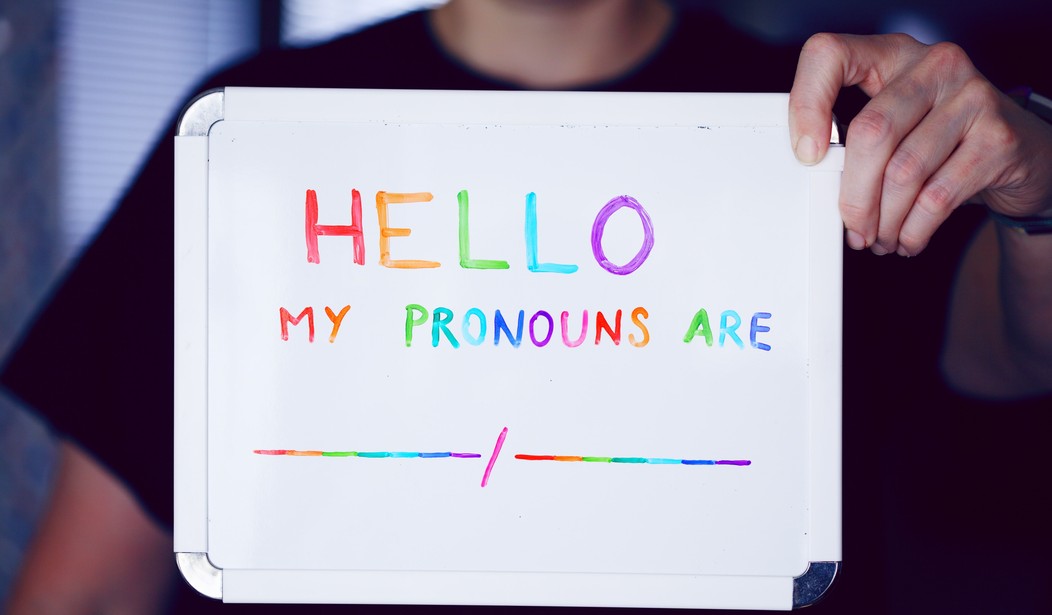There is a reason we don't let minors make certain decisions. Here in the United States, under the age of 18, it's not legal for one to buy a rifle or shotgun, sign a contract, get a tattoo, or get married or join the military (barring parental consent on those last two in some states.) Under the age of 21, one cannot buy a handgun or drink a beer.
We make these distinctions in the law because we recognize that, under a certain age, children are not capable of making completely rational decisions about a range of things. They lack the life experience, the perspective, and the mental development that some say people don't fully realize until their mid-twenties. But as a matter of law, we have to pick an age of majority, and that age for most things is 18. That's the age we have, by and large, settled on as the age of majority.
It seems a trifle strange, then, that some people - even some in the medical community - are willing to let children make decisions about irreversible, life-altering medical treatments and procedures. But that's changing, and among those calling for preventing children from being allowed to decide these things is Dr. Steven Williams of the American Society of Plastic Surgeons.
"The real issue here is, as physicians, we're driven by evidence, and our care also involves compassion and interaction with patients. But we have to really look to the evidence when we're thinking about what the appropriate care is for patients, and this is a newly-developing field. For adolescents right now, the evidence, there's just not enough of it yet," Dr. Steven Williams, president of the American Society of Plastic Surgeons, explained on "Fox & Friends First," Monday.
Gender-affirming care can involve hormonal or surgical treatments that help the patient's physical appearance or hormonal makeup more closely align with the gender identity they choose.
There's an important data point that must be added here: These treatments, be they hormonal or surgical, are irreversible and life-changing. They can render the patient sterile. They can result in the need for long-term medication and extensive post-procedure follow-ups. These are not decisions to be taken lightly; they should not be made by children.
Adults? They may do as they please, and much good may it do them. However, children are not capable of giving truly informed consent in this matter.
Dr. Williams broke ranks on the issue as proponents insist that allowing a child to continue through their natural puberty without the influence of blockers or other gender-affirming care treatments is detrimental to their mental well-being.
Williams counters that claim by pointing to the potential long-term effects of such care, which are currently ambiguous.
"I think there are a lot of things to consider. One is safety. These techniques are still in development and this is a new field for adolescents," he said.
"There are a lot of psychiatric and long-term results that we need to get better data on, and this is a particularly vulnerable population. Again, I think it's important to distinguish that we're talking about adolescent patients. For adults, this care is well-established."
It's even more important to note that recent research, including the now-published Cass Report in the United Kingdom, is now revealing that the majority of gender dysphoria claims in youths self-resolve by the time they reach adult age. That's another reason not to allow these kinds of decisions to be made by minors - the likelihood that they will come to regret those decisions is too high.
See Related: Female Olympic Boxing or Domestic Violence? For the IOC, Wokeism Is More Important Than Safety
Progressive Author Accuses the Right of Bigotry for Opposing Biological Males in Women's Sports
A primary rule in medical ethics - perhaps the primary rule - is summed up as "...first, do no harm." Invasive "gender-affirming" treatments such as surgeries and hormonal treatments for children have permanent and irreversible effects that children are simply not able to completely understand and consent to. This isn't the same issue as treatments for adults, who are (presumably) able to give informed consent, no matter what the rest of us may think of their choices. It also isn't the same as the hideously unfair practice of allowing men and boys to compete in women's and girls' sports leagues simply because they claim to be transgender. This is a matter of protecting children from rashly making decisions with permanent consequences. It's done for the same reason that we don't let children get tattoos, buy whiskey, or sign contracts.
It's our duty to protect children from having to make this kind of decision until they are old enough and experienced enough to do so. It's good to see people in the medical community, like Dr. Williams, speaking to that necessity.













